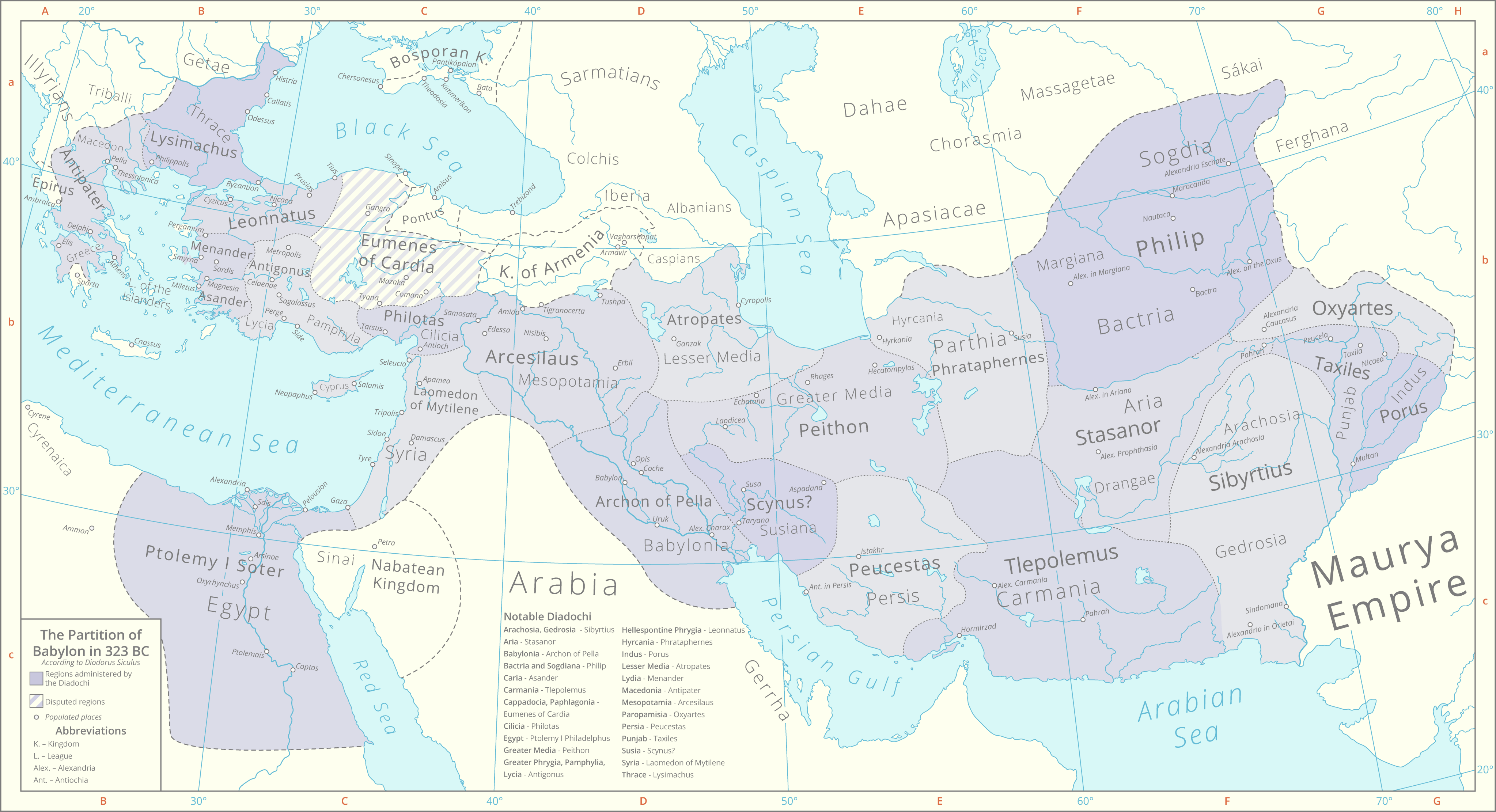
Partition of Babylon
The Partition of Babylon was the first of the conferences and ensuing agreements that divided the territories of Alexander the Great. It was held at Babylon in June 323 BC. Alexander’s death at the age of 32 had left an empire that stretched from Greece all the way to India. The issue of succession resulted from the claims of the various supporters of Philip Arrhidaeus (Alexander’s half-brother), and the as-of-then unborn child of Alexander and Roxana, among others. The settlement saw Arrhidaeus and Alexander’s child designated as joint kings with Perdiccas serving as regent. The territories of the empire became satrapies divided between the senior officers of the Macedonian army and some local governors and rulers. The partition was solidified at the further agreements at Triparadisus and Persepolis[1] over the following years and began the series of conflicts that comprise the Wars of the Diadochi.
The term "Partition of Babylon" is a modern designation.